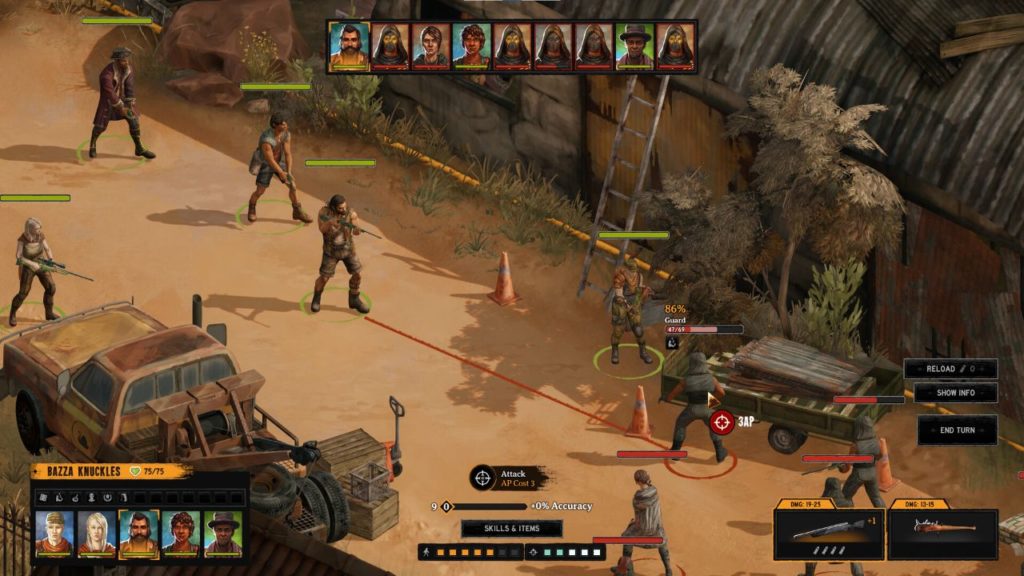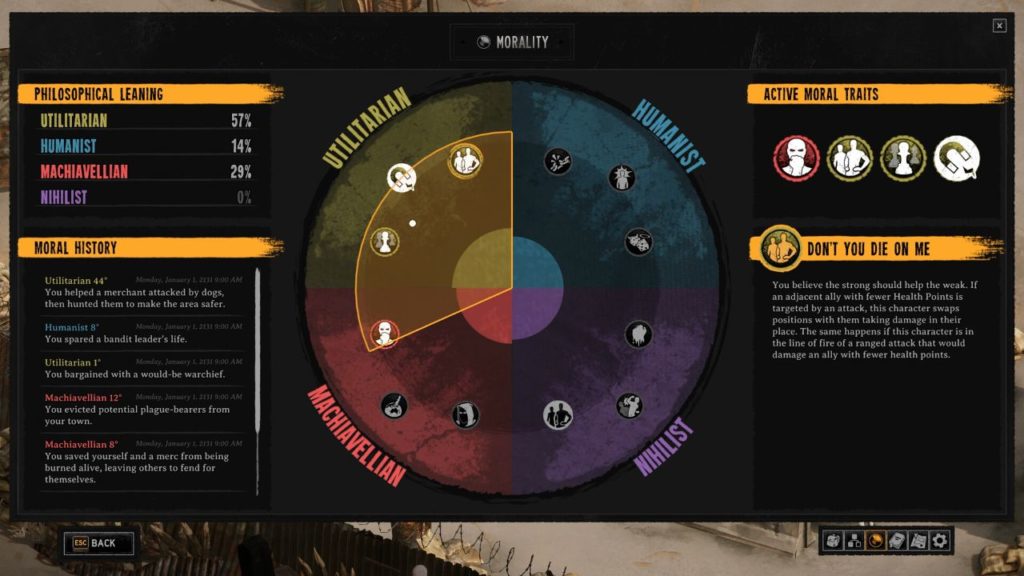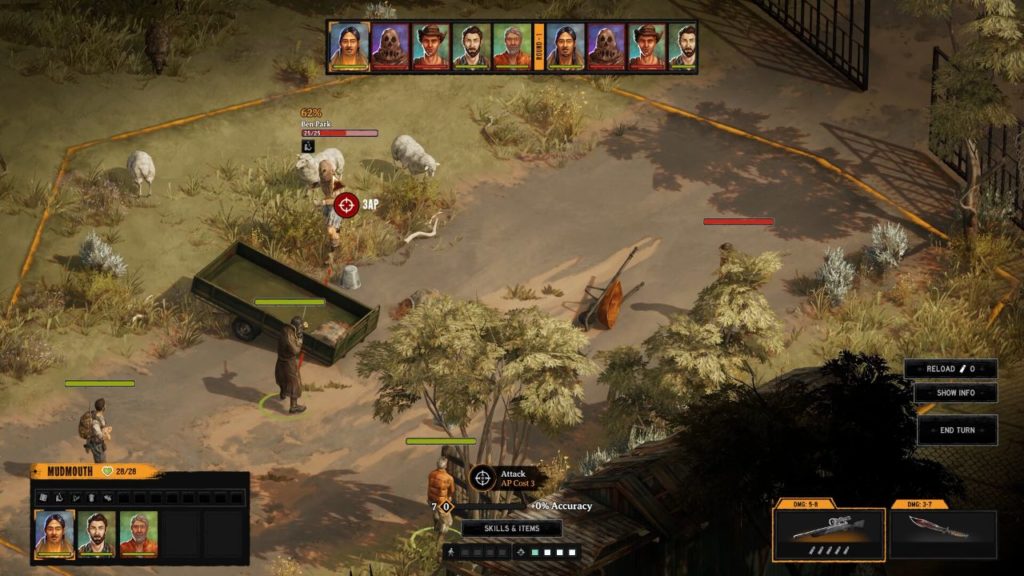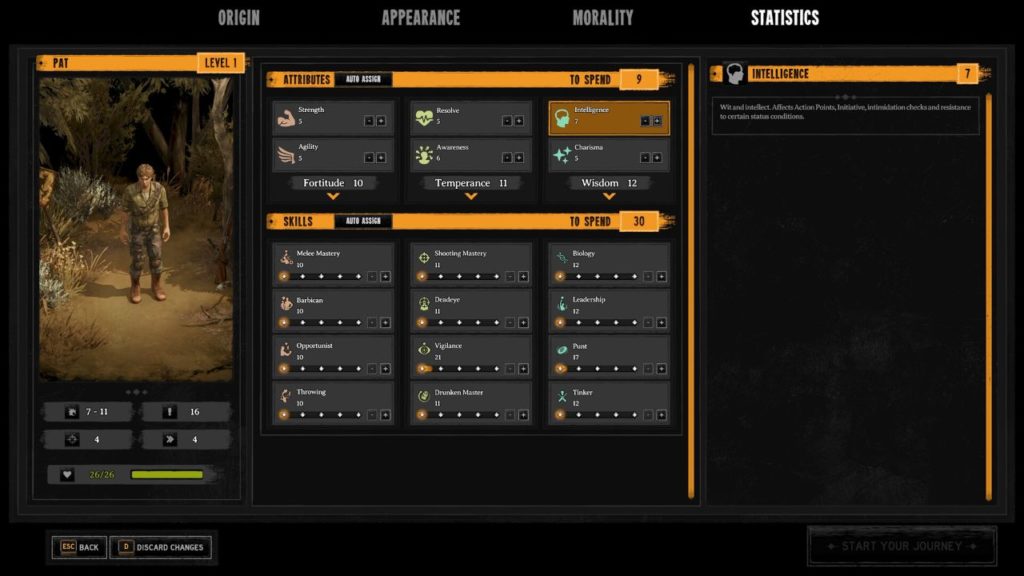Broken Roads review
The CRPG genre is one that’s never out of the zeitgeist for long, supported by the endeavours of big names like Larian Studios. But for every Baldur’s Gate 3 or Divinity Original Sin, there are half-a-dozen smaller studios with titles like Broken Roads, a throwback CRPG that has more in common with old-school Fallout or Wasteland.
It’s set in post-apocalypse Australia, decades after a nuclear catastrophe reduced the Outback to a barren, untamed, barely-hospitable wasteland that is completely different from the real-world Australian Outback because of the date. Your intrepid wanderer arrives at the town of Brookton, part of a network of small settlements that exist in an uneasy alliance borne out of mutual need. The law of supply and demand perpetuates trade agreements, governed by a loose hierarchy of self-appointed headspeople.

At the beginning you’ll select your starting origin and play through a short story that introduces you to Brookton and allows your origin traits to come into play. You’ll meet the people of Brookton, and learn the ways of the game, from combat to trade and how the dialogue works. Your character has a personality based on four traits, Machiavellian, Utilitarian, Nihilist, and Humanist. These four traits essentially dictate how the world responds to your decisions, and how those decisions will influence your path through the story. There’s no right or wrong way to play, but you’ll have a hard time with certain elements depending on your attitude.
For example, you’ll receive a request early on to track down some missing sheep. You’ll find them in possession of a group from another town, and you can choose to take them by force, split the herd, or let the others keep them. How you act here will have repercussions down the line, and that’s just one slice of one quest. But there’s something about Broken Roads that struggled to hold my interest at times.

Choices that matter are nothing new, but even when tragedy strikes – as it often does in Broken Roads – I found I didn’t really care who I sided with unless, as was often the case, one character was more of a dick than another. What had more impact on my decisions was whether or not I’d be able to avoid combat. Combat encounters in Broken Roads aren’t necessarily bad, but they swing pendulously between trivially easy and seemingly unwinnable. It’s turn-based with cover mechanics and action points, but there are certain encounters that are so one-sided you just don’t stand a chance, when 5 enemies get their turn before any of your party and have killed you all before you can get a shot off.
Partly this is down to the structure of the game. Because I played as a “Jackaroo” with high charisma, I went through the first four or five hours of the game with barely a fight. I never had to fire a shot after the tutorial, and as such I never upgraded or even replaced my gear, despite the huge number of vendors in the game. I was walking around with an inventory jam-packed full of stuff I didn’t remember picking up because I’d gotten into the habit of hitting “take all” on every container. I was basically unprepared for the first “tough” encounter I had, and kept getting my arse kicked. So I had to leave that town and go complete some other tasks elsewhere, buy better gear, level up my various abilities and stats, and then return to the conversation I’d left hanging for several days more or less mid-sentence. It wasn’t exactly an immersive experience, though essentially par for the genre.

Broken Roads has everything you’d expect from this kind of game (although your character model doesn’t change regardless of which clothing you equip, which I really don’t like), including crafting and cooking. But again, it was so far into the game when I started needing it that I’d forgotten I even could. The pacing is kind of wild, as whole hours can go by with nothing to really engage you, townsfolk giving you what amount to fetch quests where you run all over town – even to other settlements – just to have conversations. Travelling the overworld map can yield interesting encounters and even turn up new settlements, but that often just serves to sidetrack you with little real reward.
What Broken Roads does quite well, though, is story. Every named character has some backstory and you can uncover whole questlines just by speaking to a random guy or gal loitering in the sand, which adds to the general mythos of the world – and the world sorely needs it. When you’re in the desert inspecting a downed aircraft and a kangaroo hops by as the guy beside you exclaims “Strewth!”, it’s easy to forget you’re not just wandering around in the Bush and there’s a whole apocalypse happening somewhere. There’s a narrator who chimes in to explain how other characters are feeling at any given time, but the rest is left to you to infer.

I will say that, despite dialogue options in most conversations, it’s not a game where you feel you can say whatever you like. Often all of your answers lead to more or less the same outcome, such as in my aforementioned first “tough” encounter that was impossible to talk my way out of. As it happens, I went back later with a much higher shooting stat and just plugged the person who was giving me grief – but I still had to fight afterwards.
Broken Roads feels, in many ways, like a game out of its time. It shows little of the progression made in the genre over the last decade or so like Wasteland 3, for instance – but that’s likely by design. It’s not a bad game by any stretch and there’s certainly more than enough CRPG meat for genre fans to get stuck into for a good while, so if you’re looking for a game with tough choices and challenging combat to get lost in, you could do much worse.





